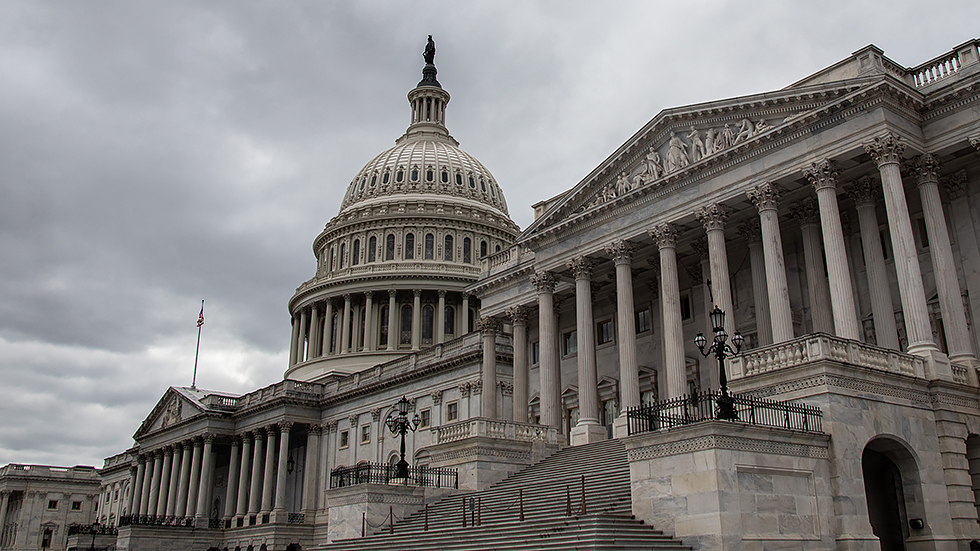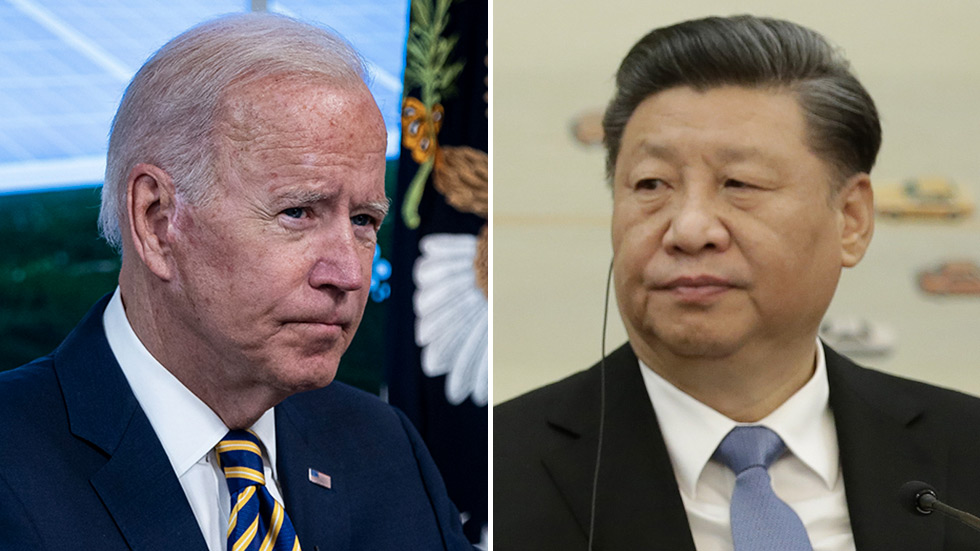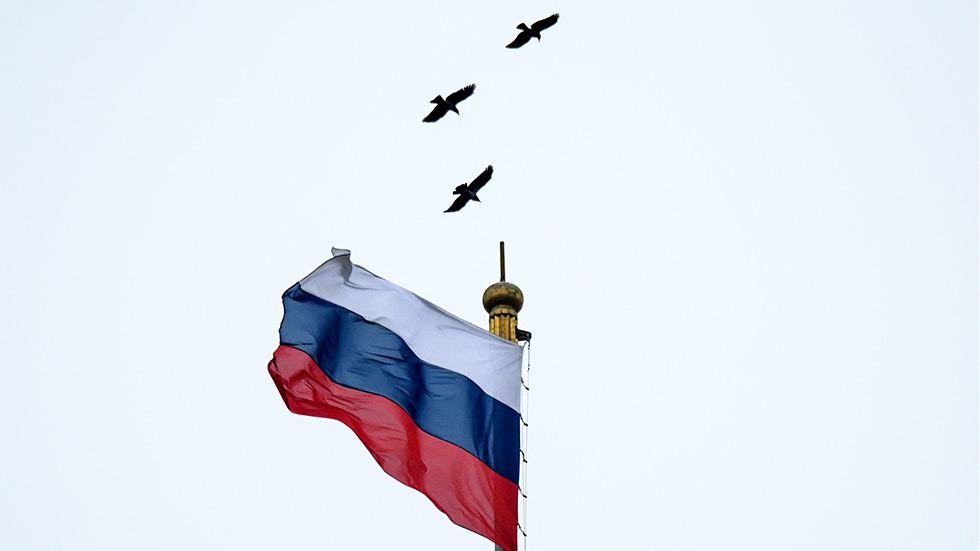Overnight Defense & National Security — Presented by Boeing — Senators to take up defense bill Wednesday
It’s Tuesday, welcome to Overnight Defense & National Security, your nightly guide to the latest developments at the Pentagon, on Capitol Hill and beyond. Subscribe here: digital-staging.thehill.com/newsletter-signup.
The Senate is set to take an initial vote on a sweeping defense policy bill on Wednesday to advance the massive bill toward the floor. But the efforts could cut into the holiday recess, Democrats warn.
We’ll share details of the schedule and what’s being done to speed things along, plus information on President Biden’s recent meeting with his Chinese counterpart Russia’s response to its unexpected anti-satellite missile test.
For The Hill, I’m Ellen Mitchell. Write to me with tips: emitchell@digital-staging.thehill.com.
Let’s get to it.
Dems mull cutting into Thanksgiving break

Democrats are warning they could cut into the Thanksgiving Day recess as they try to make progress on a sweeping defense policy bill.
The Senate typically leaves town on Thursday afternoon the week before Thanksgiving, and they are scheduled to return to Washington on Nov. 29.
A change in schedule?: But Senate Democrats say they could stay in Washington into the weekend to try to make headway on the National Defense Authorization Act (NDAA). The defense bill typically passes by a wide, bipartisan margin, but because it attracts hundreds of amendments it can eat up roughly two weeks of floor time.
“I think what we would like to do would be to finish the NDAA before Thanksgiving, so it could be later this week, it could be into Friday or Saturday, it could be early next week,” said Sen. Tim Kaine (D-Va.). “The leader said he would really like to either get NDAA done before Thanksgiving or have it all done before a final passage vote.”
Seeking cooperation: Sen. Ben Cardin (D-Md.) added they could stay in to try to drive cooperation on allowing for votes on amendments to the defense bill.
“If you don’t have cooperation by Thursday or Friday then maybe by Saturday or Sunday or Monday or Tuesday,” Cardin said, adding that Democrats want a “path forward” before they leave.
Sen. Chris Van Hollen (D-Md.) added that Democrats are “prepared to be here this weekend if necessary” to work on the defense bill.
What’s needed: The Senate is scheduled to take an initial vote on Wednesday. They’ll need 60 votes to advance the bill toward the Senate floor, a hurdle it is expected to easily meet. That sets up the Senate to start debate on the defense bill as early as Thursday, absent a deal to speed things up.
The Pentagon’s response: Pentagon spokesman John Kirby also confirmed the test and said while the immediate concerns center around the space debris, “we watch closely the kinds of capabilities that Russia seems to want to develop.”
Such Kremlin capabilities could “pose a threat not just to our national security interests but the security interests of other space faring nations.”
Kirby added that the United States wants to see space “subject to international norms and rules,” and that Washington was not notified of the test beforehand.
A mountain of amendments: That is one of the hundreds of amendments that are likely to be filed, with Republicans pushing for votes on a handful of policies including an effort by conservatives to oppose a provision in the bill that would require women to register for selective service.
Despite the mountain of potential amendments, only a handful typically get a vote as part of the Senate’s consideration of the defense bill. Any senator can block any other senator from being able to get a vote, unless Schumer is willing to eat up days of floor time and force a vote.
Speed up, please: Schumer urged Republicans to agree to speed up the defense bill, saying that he wants to “have as many votes as possible this week” and “either complete the bill or get on a path that gets it done.”
“We Democrats are ready to do that and I hope that our Republicans can join us. … We can start voting on amendments as early as tomorrow,” he said.
A MESSAGE FROM BOEING
Boeing is helping the U.S. and its allies get ready for the future fight with digitally advanced, flexible real-time mission support to win at the speed of now. Learn more.
SCHUMER: TIME IS ‘NOW’ TO REPEAL IRAQ WAR AUMF
Senate Majority Leader Charles Schumer (D-N.Y.) says he will schedule a vote soon to repeal the 2002 Iraq War resolution, a proposal that has strong bipartisan support but has languished in Congress for years.
Schumer announced Tuesday after a meeting of the Senate Democratic Caucus that he will move to fulfill his pledge to wipe the authorization for use of military force (AUMF) from the books, so that President Biden or any future president would need new authorization from Congress to launch military operations in Iraq.
Other support: He noted that Senate Foreign Relations Committee Chairman Bob Menendez (D-N.J.) and Republican Sen. Todd Young (Ind.) are leading the bipartisan effort.
The planned vote is a huge win for Sen. Tim Kaine (D-Va.), who has been pushing for Congress to retire war resolutions that were passed nearly two decades ago under President George W. Bush at the start of the so-called Global War on Terrorism.
Earlier: Schumer announced in a “Dear Colleague” letter circulated over the weekend that the vote to repeal the Iraq War resolution would come on an amendment to the National Defense Authorization Act (NDAA), which the Senate will begin debating on Wednesday.
“I made a commitment to having a vote on this proposal in 2021 and the NDAA is a logical place to have that vote,” Schumer wrote in his letter.
The vote on repealing the authorization for military force would depend, however, on getting an agreement with Republicans for voting on amendments.
Read the rest of the story here
US, China get chance for cool-down

U.S. officials say the virtual meeting held by President Biden and Chinese President Xi Jinping on Monday wasn’t about easing tensions between the two countries.
But the day after Monday night’s nearly four-hour meeting, which went longer than expected, it was hard to escape the idea that the talks hadn’t at least served as a moment to deepen lines of communications between the two governments, which have been battling over Taiwan, China’s treatment of minorities and the coronavirus, among many other issues.
“I think that the meeting might well take down the temperature a little bit in terms of … the heated rhetoric we’ve seen from both sides,” said David Sacks, an expert on U.S.-China ties at the Council on Foreign Relations. “I don’t see it leading to a new trajectory or a reset of any kind in the relationship.”
No major breakthroughs but still important: There were no major breakthroughs during the meeting, but White House officials emphasized the importance of the talks in and of themselves. The talks followed a surprise development last week in which the U.S. and China reached an agreement on a joint pledge to tackle climate change at the Glasgow COP26 summit.
That joint pledge helped pave the way for the virtual bilateral meeting.
Moving forward: Biden told reporters in New Hampshire his administration will set up four separate working groups to maintain a dialogue with China on “a whole range of issues.”
Sullivan signaled there would be follow-up conversations about the global energy supply, climate change and Taiwan.
EARLIER: BIDEN AFFIRMS ‘ONE CHINA’ POLICY ON TAIWAN
Biden on Monday reiterated his administration’s commitment to the “one China” policy on Taiwan during a virtual meeting with Xi, cleaning up remarks last month when he said the U.S. would come to Taiwan’s defense if attacked by China.
Biden “underscored that the United States remains committed to the ‘one China’ policy, guided by the Taiwan Relations Act, the three Joint Communiques, and the Six Assurances, and that the United States strongly opposes unilateral efforts to change the status quo or undermine peace and stability across the Taiwan Strait,” the White House said in a readout of the call, which lasted roughly four hours.
The current policy: Under the “one China” policy, the U.S. does not recognize Taiwan as a separate state from China. And under the Taiwan Relations Act of 1979, the U.S. is committed to providing Taiwan with arms for its defense. The law does not commit the U.S. to sending troops to Taiwan to defend it.
Recent tensions: Tensions flared between the two countries recently as China stepped up military flights into Taiwan’s airspace. The heavy military presence left China watchers recalculating over what Beijing’s aims might be with Taiwan.
Biden was subsequently asked at a CNN town hall last month whether the U.S. would defend Taiwan if it were attacked by China
“Yes, we have a commitment to do that,” Biden said at the time.
The comments prompted a tough response from China, with a Foreign Ministry spokesman saying “there is no room for China to compromise or make concessions.”
A MESSAGE FROM BOEING
Boeing is helping the U.S. and its allies get ready for the future fight with digitally advanced, flexible real-time mission support to win at the speed of now. Learn more.
Russia dismisses missile test concerns

Russia on Tuesday pushed back on U.S. and ally accusations that its missile test that struck a defunct space satellite potentially put astronauts aboard the International Space Station at risk.
Moscow’s Ministry of Defense confirmed in a statement that it had “successfully conducted a test” to hit an old Russian satellite launched into orbit by the Soviet Union in 1982, NBC News reported.
The test: The anti-satellite weapons test on Monday created a potentially dangerous field of around 1,500 pieces of debris in space, forcing astronauts aboard the International Space Station to take shelter. The United States has since called Moscow’s action an “irresponsible act.”
Russia’s claims: Russia’s Defense Ministry however, dismissed such concerns and said the U.S. “knows for certain that the resulting fragments, in terms of test time and orbital parameters, did not and will not pose a threat to orbital stations, spacecraft and space activities.”
And Russian Foreign Minister Sergey Lavrov said that Washington was hypocritical in its claim that Moscow had risked peaceful activities in space, according to NBC.
US concerns: But U.S. officials have condemned the act and said Washington will now work with allies and partners to respond.
State Department spokesman Ned Price said Monday that Russia’s “dangerous and irresponsible behavior jeopardizes the long-term sustainability of our outer space and clearly demonstrates that Russia’s claims of opposing the weaponization of space are disingenuous and hypocritical.”
Pentagon spokesman John Kirby, meanwhile, said the U.S. is closely watching “the kinds of capabilities that Russia seems to want to develop,” as they could “pose a threat not just to our national security interests but the security interests of other space faring nations.”
ON TAP FOR TOMORROW
- The House Oversight and Reform Committee will hold a hearing on “Invisible Wounds: Preventing Suicide in Our Nation’s Military and Veteran Communities,” at 10 a.m.
- The House Foreign Affairs Committee will hold a hearing on “The FY22 Budget: State Department Counterterrorism Bureau,” at 10 a.m.
- The Senate Foreign Relations Committee will hold a full committee hearing on “Afghanistan 2001-2021: U.S. Policy Lessons Learned,” at 10 a.m.
- The U.S.-China Commission will hold its “Annual Report Public Release Event” at 10:30 a.m.
- The Carnegie Endowment for International Peace will hold a discussion on “Nuclear Peace in South Asia?” at 10:30 a.m.
- The Senate Intelligence Committee will hold a closed briefing at 2 p.m.
- The Brookings Institute will hold an event on “Russia, China, and the future of strategic stability,” at 2 p.m.
WHAT WE’RE READING
-
US moving forward with stealth fighter sales to UAE, official says
-
Pentagon accuses Iran of ‘unsafe’ conduct after it approached US warship
-
Virginia governor defends push to make VMI more inclusive in speech to cadets
-
Unions sue in bid to represent Connecticut National Guard members
-
New book says Trump allies pushed DoD to overturn election
-
The Hill: Opinion: Biden-Xi summit: Meaningless talk can lead to war
-
The Hill: Opinion: An independent commission should review our National Defense Strategy
-
The Wall Street Journal: Iran Resumes Production of Advanced Nuclear-Program Parts, Diplomats Say
That’s it for today. Check out The Hill’s defense and national security pages for the latest coverage. See you Wednesday.
{mosads}
Copyright 2024 Nexstar Media Inc. All rights reserved. This material may not be published, broadcast, rewritten, or redistributed..














